Contents
Landmarks
Print Page List
Copyright 2020 Donna Rifkind
Production editor: Yvonne E. Crdenas
Text designer: Julie Fry
All rights reserved. No part of this publication may be reproduced or transmitted in any form or by any means, electronic or mechanical, including photocopying, recording, or by any information storage and retrieval system, without written permission from Other Press LLC, except in the case of brief quotations in reviews for inclusion in a magazine, newspaper, or broadcast. For information write to Other Press LLC, 267 Fifth Avenue, 6th Floor, New York, NY 10016.
Or visit our Web site: www.otherpress.com
The Library of Congress has cataloged the printed edition as follows:
Names: Rifkind, Donna, 1961 author.
Title: The sun and her stars : Salka Viertel and Hitlers exiles in the golden age of Hollywood / Donna Rifkind.
Other titles: Salka Viertel and Hitlers exiles in the golden age of Hollywood
Description: New York : Other Press, 2020. |
Includes bibliographical references and index.
Identifiers: LCCN 2019942339 | ISBN 9781590517215 (hardcover) |
ISBN 9781590517222 (ebook)
Subjects: LCSH : Viertel, Salka. | ScreenwritersUnited StatesBiography. | Hollywood (Los Angeles, Calif.)History. | Los Angeles (Calif.)History. Los Angeles (Calif.)Biography. | Hollywood (Los Angeles, Calif.)Social life and customs. | Los Angeles (Calif.)Social life and customs.
Classification: LCC PN 2287. V 47 R 54 2019 | DDC 812/.52 [B] dc23
LC record available at https://lccn.loc.gov/2019942339
Ebook ISBN9781590517222
v5.4
a
To my husband and sons, and in memory of my parents, sister, and brother
Mankind is divisible into two great classes: hosts and guests.
MAX BEERBOHM, 1918
There are no minor characters.
JANE GARDAM, 2014
 CONTENTS
CONTENTS
 INTRODUCTION
INTRODUCTION
THE LOOK , THE SOUND , AND THE SPEECH of Hollywoods Golden Age did not originate in Hollywood. Much of it came from Europe, through the work of successive waves of immigrants during the first half of the twentieth century. The last several of those waves brought a group of traumatized artists who were lucky enough to escape Hitlers death trains and extermination camps. All were antifascists; a few were Communists; most were Jews. These were Hitlers gift to Americaprodigious individuals who enriched the film culture and the intellectual life of our nation, and whose influence continues to resonate. Plenty of writers have explored the ways these refugees, exiles, and migrs managed to escape from Europe. Fewer have told about the Americans who had the courage to take them in. Of those heroic citizens, at the top of the list for her uncompromising conviction and generosity, was a too-often-forgotten screenwriter in Santa Monica named Salka Viertel. This is her story.
Salka Viertel was a recently naturalized American when Hitlers war began, having arrived from Berlin on a visitor visa in Hollywood with her husband during one of the earlier waves of emigrating filmmakers, in 1928. She became a proud and grateful U.S. citizen in February of 1939, only months before the official outbreak of war in Europe on September 1 of that year. It was her very Europeanness that had alerted her early on to the growing conflagration across the Atlantic, well before Hitler took power in 1933. She had been raised in a well-heeled Jewish family in a garrison town in Galicia called Sambor, on the fringes of the Austro-Hungarian Empire, where shed been born in 1889. And she came of age as an actress on the stages of many European cities, most notably Weimar-era Berlin. Long before the advent of National Socialism made anti-Semitism official state policy in Germany, Salka Viertel was quite familiar with its lethal intentions. Thus after 1933 she was extra sympathetic to the attempts of the panicked human beings who began to launch themselves desperately, in any way they could, toward the possibility of safety in America. An estimated ten thousand refugees from Germany and Austria settled in greater Los Angeles between 1933 and 1941, a significant part of the most complete migration of artists and intellectuals in European history up to that time, according to California historian Kevin Starr. Members of Salka Viertels own family were among those refugees, as were hundreds of her friends and many more strangers. In Santa Monica, she made it her mission to provide a refuge for them in her own home and to absorb them into her social and professional network, all to help them survive in a wholly unfamiliar new world.
Americas own deeply rooted anti-Semitism, the eruptions of homegrown fascism that emerged in the 1930s with rallies sponsored by the Silver Shirts and the German American Bund, and widespread anti-immigrant sentiments stoked by such fearmongers as Father Coughlin were factors in the Roosevelt administrations reluctance to alter strict immigration policies that had been further tightened during the Great Depression. While Roosevelt was not unsympathetic to the plight of Europes Jews, during the early years of his administration his chief concerns were domestic, focused on boosting employment and fostering an economic recovery. His administration chose to maintain the stringent quotas for refugees that had been established in 1924, reluctant to stir up an already robust homegrown xenophobia. Later, after 1941, he concentrated almost exclusively on winning the war. And so it became clear that rescue for the Jews, as Hitler set out methodically to kill them all, was not likely to originate with U.S. government agencies. It would be individual efforts such as Salka Viertels, synchronized with organizations like Hollywoods European Film Fund and Varian Frys Emergency Rescue Committee, that saved the lives of hundreds of refugees during the earlier stages of National Socialisms twelve-year domination, and which then mobilized to help those refugees adapt to life in America.
As I began to read the histories of the two intersecting arenas where Salka Viertel rang up her accomplishments during the 1930s and 1940sthe film studios of Hollywoods Golden Age and the gathering places of the antifascist emigrationI found myself asking again and again: where are all the women? I read dozens of thoughtful, entertaining, even groundbreaking works about Hollywood in which women who were not wives, secretaries, or movie stars scarcely make an appearance. Yet women worked in every department of the studios. They were screenwriters, editors, researchers, readers, publicists, costumers, hair and makeup artists. Often below the line and unglorified, women were nonetheless vital to the success of these vast, complex organizations, and some of them wielded genuine influence if not actual power. Where are their stories?

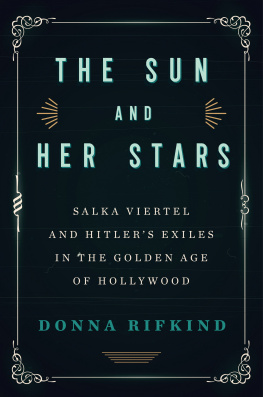
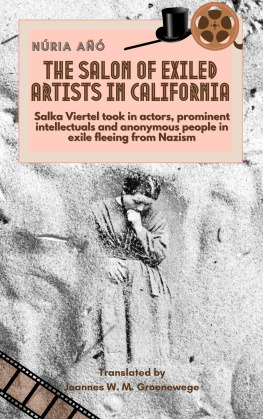

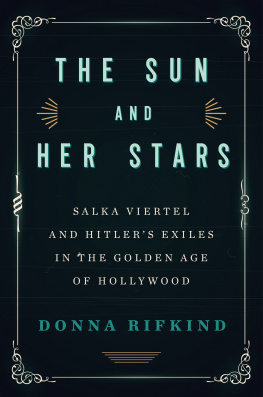
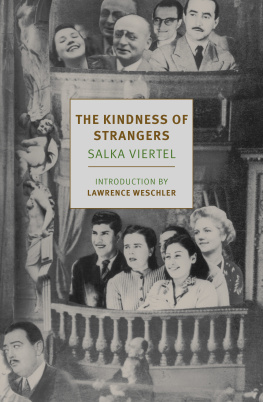
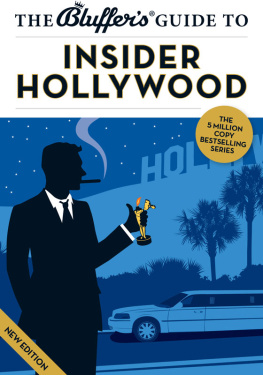


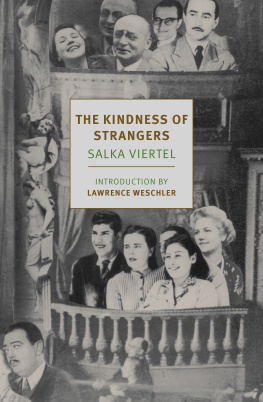
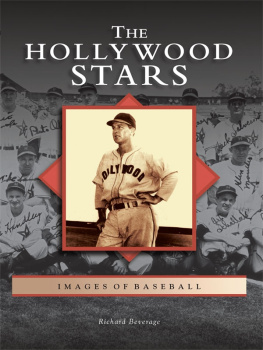
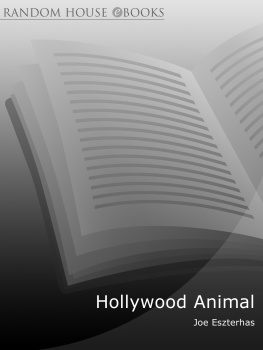
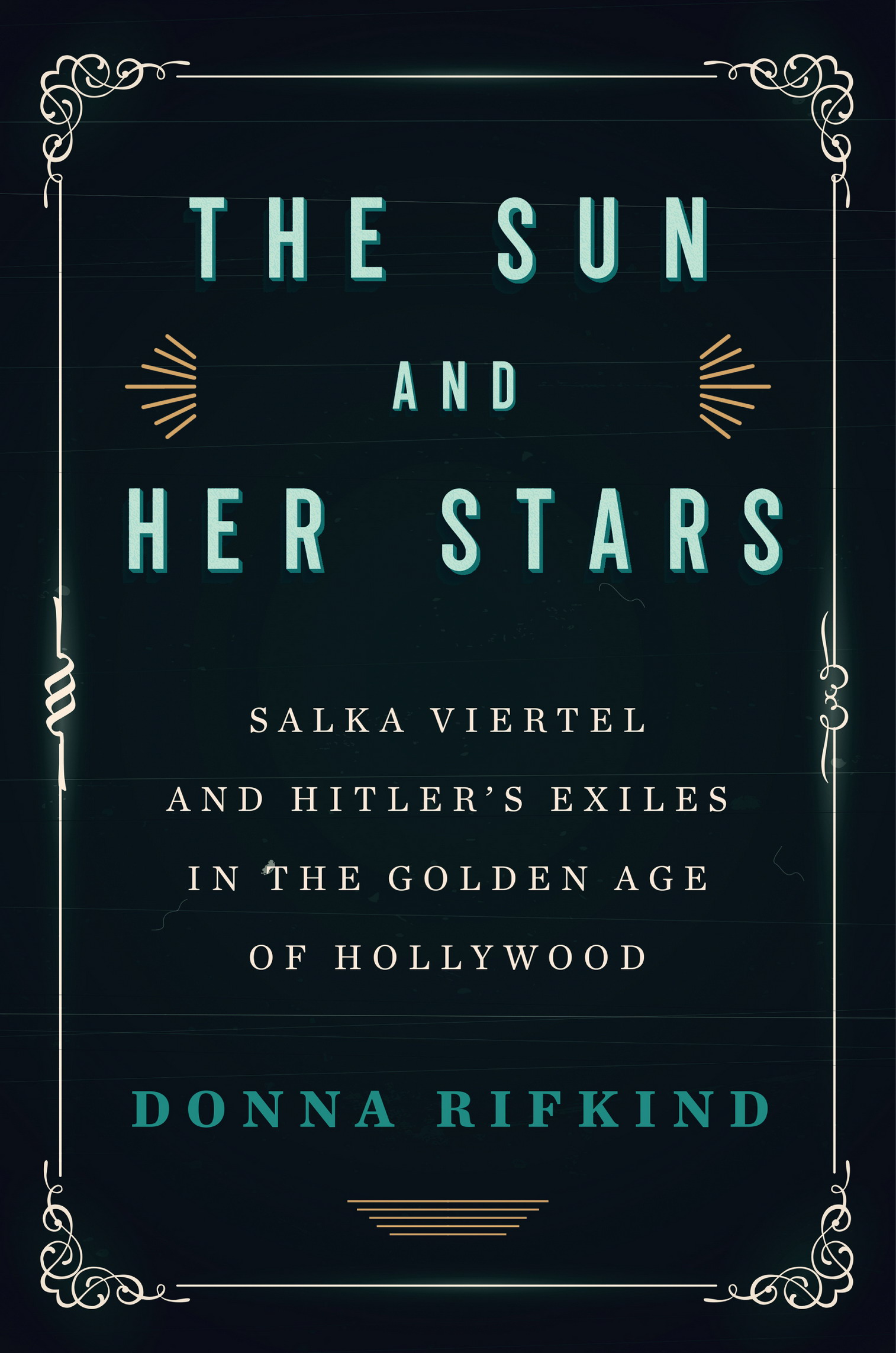
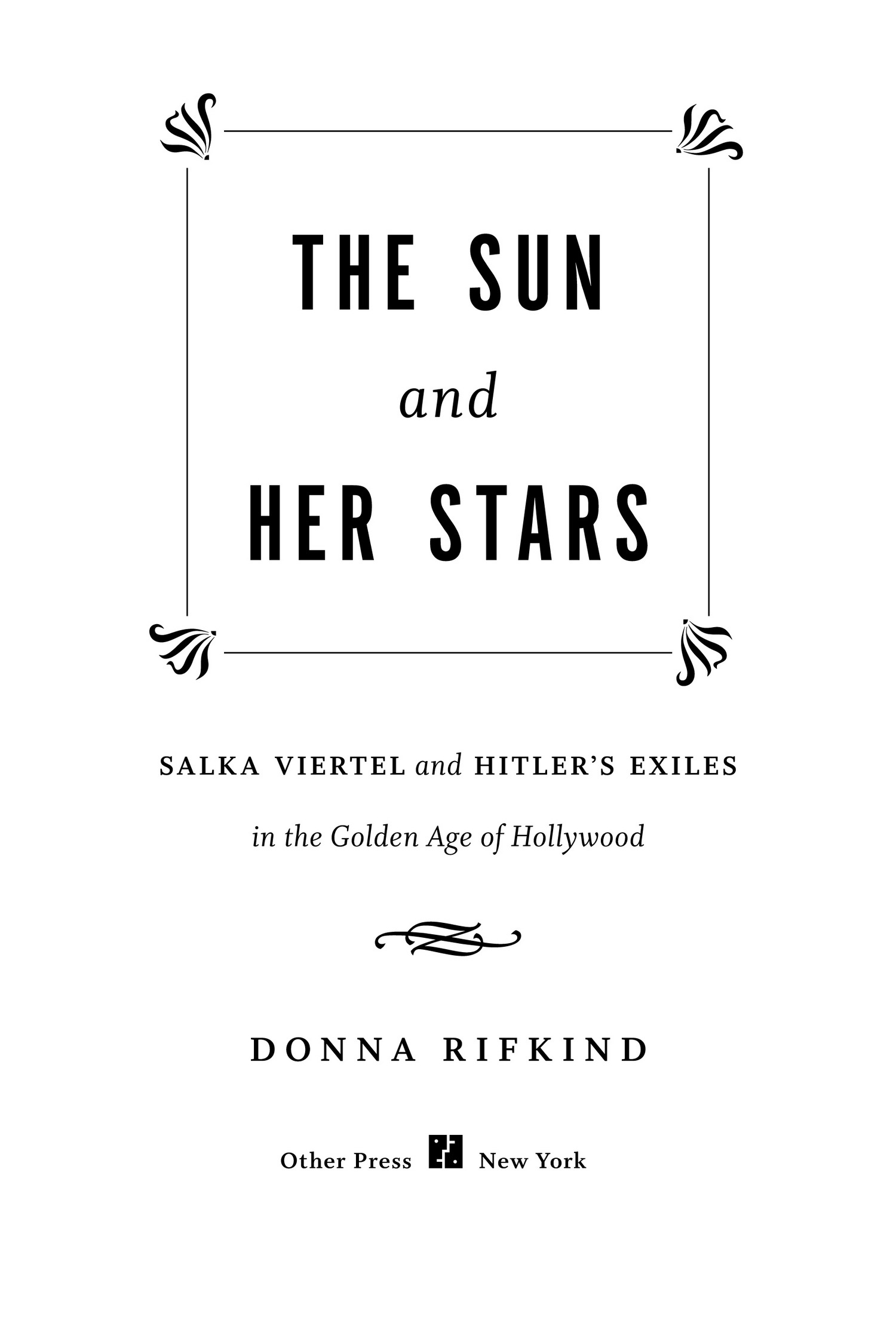
 CONTENTS
CONTENTS